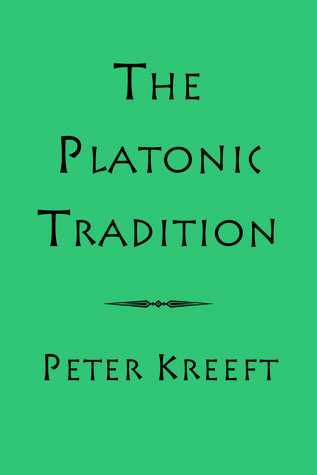- Biblia
- Leer la Biblia
- Versiones de la Biblia
- Verso del dia
- Planes de lectura
- Versos por tema
- Books of the Bible
- Imágenes De La Biblia
- Estudio
- Comentarios
- Concordancias
- Diccionarios bíblicos
- Enciclopedias bíblicas
- Sermones
- Bible Atlas & Maps
- BP Wiki
- Devocionales
- Devocionales de hoy
- Light of the World
- Todos los devocionales
- Inspirational Quotes
- Más
- Picture Quotes
- Videos
- Inspirador
- Estudio Bíblico
- Lo que dice la Biblia
- Bible Q&As
- Daily Bread
- Bible by Genre
- Bible Stories
- Random Bible Verse
- Comunidad
- Store
The Platonic Tradition
by Peter Kreeft
The Platonic tradition in Western philosophy is not just one of many equally central traditions. It is so much THE central one that the very existence and survival of Western civilization depends on it. It is like the Confucian tradition in Chinese culture, or the monotheistic tradition in religion, or the human rights tradition in politics.
In the first of his eight lectures, Peter Kreeft defines Platonism and its “Big Idea,” the idea of a transcendent reality that the history of philosophy has labeled “Platonic Ideas” or Platonic Forms. In the second lecture, he briefly explores Plato’s two basic predecessors or sources, myth and Socrates; and then looks at 12 applications of the Forms in Plato’s own dialogues. The third lecture covers the three most important modifications or additions to Plato himself in the Platonic tradition: Aristotle, Plotinus, and Augustine, each of whom gave the Forms a new metaphysical address. The fourth lecture explores six Christian Platonists, three in the New Testament and three philosophers, Justin Martyr, Bonaventure, and Aquinas.
The next three lectures explore the consequences of the modern abandoning of Platonism, beginning with William of Ockham’s Nominalism, as the source of nearly all modern philosophical errors, and its results in the Empiricism of Locke and Hume, the so-called Copernican Revolution in philosophy in Kant, the so-called “analytic philosophy,” which still dominates English and American philosophy departments. In the sixth essays, Kreeft looks at 13 influential kinds of positivism or reductionism in modern thought: in method, history, metaphysics, epistemology, ethics, sociology, politics, logics, linguistics, sex, psychology, and theology, exemplified by Descartes, Machiavelli, Hobbes, Marx, Kant, Comte, Rousseau, Rawls, Ayer, Derrida, Freud, Skimmer, Nietzsche, and Sartre. Lecture 7 looks at the results of abandoning the Platonic tradition in ethics, the values vacuum, or nihilism, in Ecclesiastes, Pascal, Kierkegaard, Nietzsche, Heidegger, Sartre, Dostoyevsky, Tolstoi, Marcel, and Buber. In the last lecture, Kreeft looks at some experiential evidence for Platonism, doors out of the cave that are still open, signals of transcendence.
In the first of his eight lectures, Peter Kreeft defines Platonism and its “Big Idea,” the idea of a transcendent reality that the history of philosophy has labeled “Platonic Ideas” or Platonic Forms. In the second lecture, he briefly explores Plato’s two basic predecessors or sources, myth and Socrates; and then looks at 12 applications of the Forms in Plato’s own dialogues. The third lecture covers the three most important modifications or additions to Plato himself in the Platonic tradition: Aristotle, Plotinus, and Augustine, each of whom gave the Forms a new metaphysical address. The fourth lecture explores six Christian Platonists, three in the New Testament and three philosophers, Justin Martyr, Bonaventure, and Aquinas.
The next three lectures explore the consequences of the modern abandoning of Platonism, beginning with William of Ockham’s Nominalism, as the source of nearly all modern philosophical errors, and its results in the Empiricism of Locke and Hume, the so-called Copernican Revolution in philosophy in Kant, the so-called “analytic philosophy,” which still dominates English and American philosophy departments. In the sixth essays, Kreeft looks at 13 influential kinds of positivism or reductionism in modern thought: in method, history, metaphysics, epistemology, ethics, sociology, politics, logics, linguistics, sex, psychology, and theology, exemplified by Descartes, Machiavelli, Hobbes, Marx, Kant, Comte, Rousseau, Rawls, Ayer, Derrida, Freud, Skimmer, Nietzsche, and Sartre. Lecture 7 looks at the results of abandoning the Platonic tradition in ethics, the values vacuum, or nihilism, in Ecclesiastes, Pascal, Kierkegaard, Nietzsche, Heidegger, Sartre, Dostoyevsky, Tolstoi, Marcel, and Buber. In the last lecture, Kreeft looks at some experiential evidence for Platonism, doors out of the cave that are still open, signals of transcendence.
Hardcover, 152 pages
Published June 15th 2018 by St. Augustine's Press
tags: philosophy
Suscribir
© 2025 Bibleportal.com Reservados todos los derechos.

Peter John Kreeft is a professor of philosophy at Boston College and The King's College, and author of numerous books as well as a popular writer on Christian theology, and specifically Roman Catholic apologetics. He also formulated together with Ronald K. Tacelli, SJ, "Twenty Arguments for the Existence of God".
Kreeft took his A.B. at Calvin College (1959), and an M.A. at Fordham University (1961). In the same university he completed his doctoral studies in 1965. He briefly did post graduate studies at Yale University. He joined the Philosophy faculty of the Department of Philosophy of Boston College in 1965. In 1994 he was a signer of the document Evangelicals and Catholics Together.
... Show more